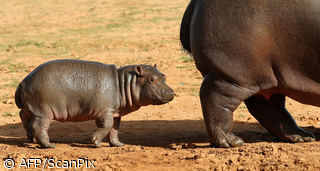Latvian police said a drunk picked up with around twice the blood-alcohol level considered deadly had probably set a world record but would wake with a hangover to match
Published:
2 January 2004 y., Friday
The unidentified middle-aged man was unconscious but stable after a blood test showed 7.22 parts per million of alcohol, police spokeswoman Ieva Zvidre said.
An average person would vomit at around 1.2, lose consciousness at 3.0 and stop breathing at a level of about 4.0 parts per million, Zvidre said, adding: "This is one for the Guinness Book of Records."
Emergency ward head Martins Sics told reporters there was no record of anybody having survived such a dose, even in neighbouring Russia which takes pride in its vodka-guzzling traditions.
"He won't remember a thing when he comes to," Sics said.
Šaltinis:
smh.com.au
Copying, publishing, announcing any information from the News.lt portal without written permission of News.lt editorial office is prohibited.
The most popular articles
 Antje Schmitt makes these boiled wool accessories at her home in southern Germany.
more »
Antje Schmitt makes these boiled wool accessories at her home in southern Germany.
more »
 The jingle cats are back with a new array of songs to get everyone into the holiday spirit.
more »
The jingle cats are back with a new array of songs to get everyone into the holiday spirit.
more »
 Marwell zoo in Hampshire, England is celebrating the birth of a new pygmy hippo by asking people to name it.
more »
Marwell zoo in Hampshire, England is celebrating the birth of a new pygmy hippo by asking people to name it.
more »
 Duncan Zuur delighted bemused touristsof Venice , who gathered in front of the Basilica to watch the bizarre spectacle.
more »
Duncan Zuur delighted bemused touristsof Venice , who gathered in front of the Basilica to watch the bizarre spectacle.
more »
 A tall conical steel structure coated in confectionery, standing in a luxury shopping centre in Jakarta.
more »
A tall conical steel structure coated in confectionery, standing in a luxury shopping centre in Jakarta.
more »
 Every year truffle hunters in Italy seek out the giant white tartufo, but with the changing weather patterns, this years one was hard to find.
more »
Every year truffle hunters in Italy seek out the giant white tartufo, but with the changing weather patterns, this years one was hard to find.
more »
 Beyonce has scored her third straight Number 1 debut on The Billboard 200 this week with "I Am...Sasha Fierce".
more »
Beyonce has scored her third straight Number 1 debut on The Billboard 200 this week with "I Am...Sasha Fierce".
more »
 Chinese artist Ju Duoqi 's kitchen is her studio and vegetables are her paint.
more »
Chinese artist Ju Duoqi 's kitchen is her studio and vegetables are her paint.
more »
 Kids had broken the noise ordinance in Lupton Colorado and Municipal Court sentenced them to one hour's worth of ‘positive‘ music at full blast.
more »
Kids had broken the noise ordinance in Lupton Colorado and Municipal Court sentenced them to one hour's worth of ‘positive‘ music at full blast.
more »
 Scientists have placed photographic cameras with movement sensors covering large forest and jungle areas in Mexico to detect and study the felines.
more »
Scientists have placed photographic cameras with movement sensors covering large forest and jungle areas in Mexico to detect and study the felines.
more »